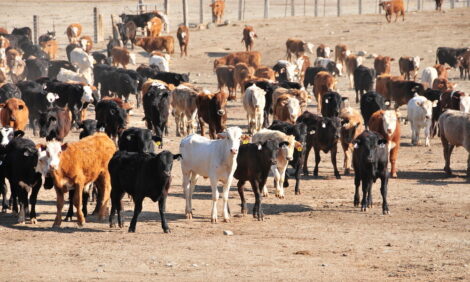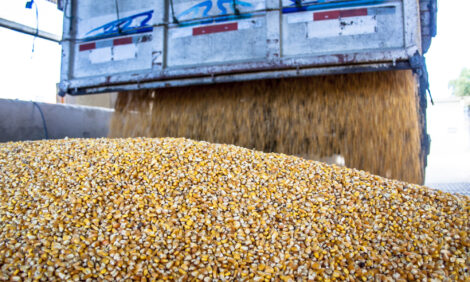



Conference Tackles Beef Sustainability
US - Over 300 participants from around the world are tackling the issue of beef sustainability, at the Global Conference on Sustainable Beef in Denver. This is a multiple stakeholder approach to the issue, to get the conversation started on how best to deal with this challenge.This unique forum for constructive dialogue is meant to improve industry sustainability by exploring and clarifying the environmental, economic and social impacts of a sustainable beef system. Through this approach, stakeholders will share better management practices to drive continuous improvement.
The multiple stakeholders, in this case are from all the sectors throughout the beef supply chain, from producers to retailers, as well as producer associations, academia, and non-governmental organisations (NGOs).
The largest foreign delegation, at this truly international event, is from Brazil, which has a very strong representation.
The initial presentations focused on why the beef sustainability issue is so important. As the attendees heard many times – today there are six billion people in the world, one billion of which go to bed hungry every night. By 2050 there will be nine billion people on the planet, and they will have to be fed on just about the same amount of agricultural land that is in use now.
We have to use fewer resources to produce more food. That is why sustainability is such a key issue for the beef industry.
Jason Clay, from the World Wildlife Fund, one of the sponsoring organisations of this event, suggested that the beef industry needs to select six to eight issues to focus on, rather than just focusing on one variable or looking at all the variables. Pick the handful of issues that is most important, and focus on those – which will then produce tangible results for the industry.
Mr Clay recommended that the focus be on science based data with measurable outcomes.
There was also a regional variations panel, with presentations from: Africa, Argentina, Australia, Brazil, Europe, US and China. The audience learned about the sustainability related issues that were affecting each other or region.
Among the many cross-cutting themes that were presented by the speakers were:
- There are unique regional differences that have to be accounted for and understood within their context.
- The interface between the import and export sides of the business and how the market-based world comes together.
- The classic issues of: water, land and greenhouse gases, and how those converge.
- In order to be sustainable, you have to be viable.
- The beef industry deserves credit for the strides towards sustainability that have been made in recent years.
The first day of the event ended with a dinner and keynote address by Ann Veneman, former US Secretary of Agriculture, 2001-2005 and Executive Director of UNICEF (2005-2010). Her main point was that it is imperative that multiple stakeholders get together to discuss the issues and solve complex problems. That is the only way that issues will get resolved.
She noted that in recent years she has seen organisations come together to solve issues, instead of fighting with each other as they used to.
Miss Veneman discussed the issues and challenges facing the beef industry, and mentioned that sustainability is definitely a shared goal for everyone.
She also made it very clear that if the industry ignores the problem, then somebody else will get to define the issue for the industry, and in many cases that means governments imposing unworkable regulations.
Miss Veneman concluded that the beef industry has an unprecedented opportunity in the case of sustainability and that it should make the most of it.
TheCattleSite News Desk


